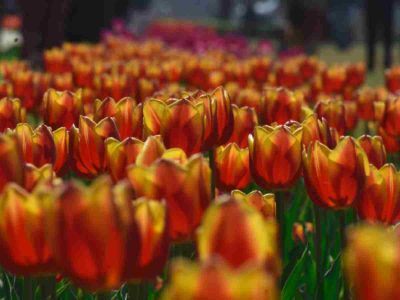Delhi Pollution: For years, houseplants have been celebrated as natural air purifiers, but recent insights suggest their air-cleaning capabilities are minimal at best. While they add beauty and serenity to interiors, their impact on improving air quality is vastly overstated. Scientists are now urging a shift in focus towards trees, which are far more effective in purifying the air.
The belief in houseplants as potent air purifiers originated from a NASA study in the late 1980s. The research revealed that certain plants could remove toxins like benzene and formaldehyde—but only under highly controlled conditions in sealed chambers. In real-world settings, where air exchange rates are higher and pollutant concentrations lower, houseplants have a negligible impact. Experts estimate that it would take hundreds, if not thousands, of plants in a single room to match the efficiency of a standard ventilation system.
Also read: Stolen childhood: The role of placement agencies in abuse and child labour
In contrast, trees have a proven, large-scale impact on air quality. Through carbon sequestration, they absorb significant amounts of CO₂, reducing greenhouse gases and mitigating climate change. Tree canopies act as natural filters, trapping airborne particles like dust and smoke, preventing these pollutants from spreading further. Additionally, mature trees produce far more oxygen than smaller plants, with one large tree capable of supplying enough oxygen for two people annually. By shading urban areas, trees also lower temperatures and indirectly reduce pollution levels caused by heat.
Scientific evidence reinforces the role of trees as powerful air purifiers. A study published in Nature found that urban forests in the US remove 711,000 metric tonnes of air pollution every year, delivering 3.8 billion dollars in health benefits. Trees such as oaks, maples, and pines are especially effective at filtering harmful pollutants like nitrogen dioxide and sulphur dioxide.
According to Vallari Sheel, Urban Ecologist, “For several years now, people have mistakenly assumed that keeping a few houseplants would help mitigate indoor air pollution. If we really want the help of plants in reducing impacts of air pollution, we have to maintain a dense green cover in our cities, primarily provided by large trees with dense canopies. It is of utmost importance that we protect such old, mature trees in our cities, instead of allowing them to be felled. Having a multi-layered green cover is also helpful, composed of herbs and other ground cover, shrubs, climbers, and trees of varying heights.”
While houseplants offer aesthetic and psychological benefits, their contribution to air purification is limited. Trees, however, are indispensable in the fight against air pollution and the creation of cleaner, healthier environments.
Also read: Delhi’s fight against pollution hit by staff shortage





